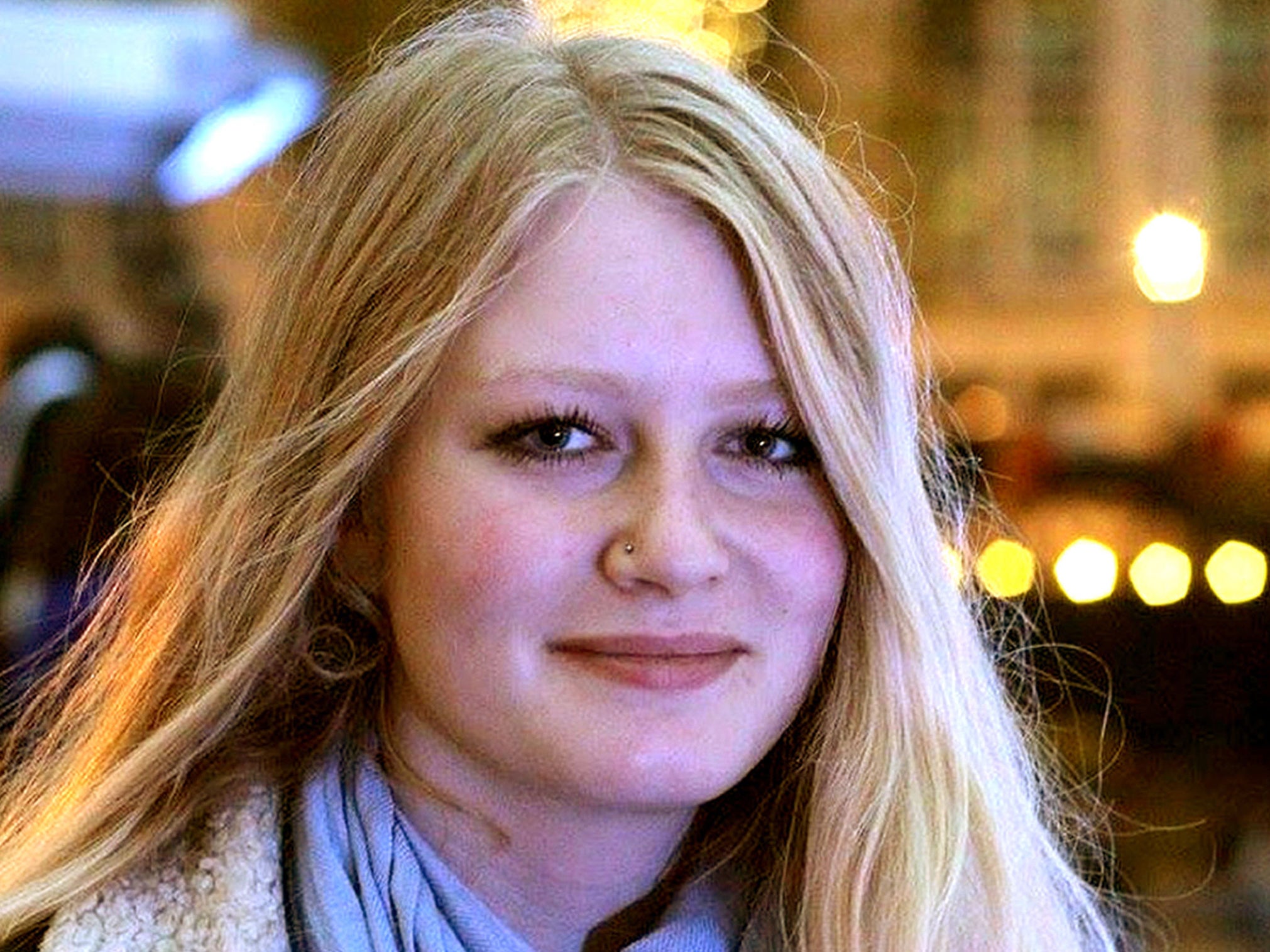Gaia Pope: Police watchdog launches new probe over handling of rape allegation two years before teenager's death
'Gaia fell through the cracks in that system and she died there,' says grieving cousin

Police who failed to act on an allegation of rape made by Gaia Pope two years before her tragic death are under investigation in a fresh probe.
Dorset Police took no further action over her complaint in 2015 and the epileptic teenager developed symptoms of post-traumatic stress disorder.
The 19-year-old’s family say she became increasingly “disturbed” by the knowledge that the perpetrator had targeted others, and could soon be freed from prison under early release.
Gaia was reported missing from her home in Swanage on 7 November and her body was discovered almost two weeks later in undergrowth on a nearby clifftop.
Natasha Pope, Gaia’s mother, said: “There is no doubt in my mind: this is what drove Gaia up the hill that night. I am relieved that at last, it will be properly investigated and I am resolved to see positive change. It was not her intention but in a way, my daughter gave her life to shine a light on all this.”
Her father Richard Sutherland said the family needs to know if more could have been done to make Gaia feel safe and protect the public.
“Nothing can bring her back to us but a thorough, transparent and unbiased investigation will help us move forwards,” he added. “We need to know the truth.”
The Independent Office for Police Conduct (IOPC) said it was investigating the family’s complaint over Dorset Police’s handling of a rape allegation Gaia made in December 2015.
Catrin Evans, the IOPC director with responsibility for Dorset Police, said: “After initial investigation, in June 2016 Dorset Police made the decision to take no further action in respect of a rape allegation made by Gaia.
“Following complaints made by her family, we will investigate whether the police response was in accordance with local and national policies and guidance in relation to the investigation of rape cases, including Crown Prosecution Service referral and charging criteria.
“My thoughts continue to be with Gaia’s family and everyone affected by her death.”
Maya Pope-Sutherland, Gaia’s sister, said the family felt like they had been “screaming in a vacuum”.
She added: “I hope our search for answers can open the door to positive change and help other survivors be heard and get justice. It's what Gaia would have wanted.”
Sister Clara Pope-Sutherland, Gaia’s sister, warned that survivors of sexual violence were not being properly heard, supported and protected.
“Hand in hand, she leads the way with all survivors,” she said. “We are grateful to the IOPC for recognising the need to investigate. We hope it will begin to give Gaia the voice she so deserved when she was alive.”
Their cousin Marienna Pope-Weidemann said relatives will continue to fight for Gaia’s rights.
“Gaia fell through the cracks in that system and she died there,” she said. “Some nights I can’t sleep, can’t breathe, I miss her so much. We all do.”
The IOPC is separately investigating Dorset Police’s response to Gaia’s disappearance, which was reported by her family 11 days before her body was found on a clifftop near Swanage. An inquest concluded she had died of hypothermia.
“We are examining the actions and decisions of Dorset Police when dealing with the missing person report made in respect of a vulnerable young woman,” a spokesperson said in April.
“We will also consider whether the force appropriately risk assessed, resourced and reviewed the missing person report.”
Thousands of people had joined increasingly desperate searches for the teenager and a pensioner, her son and grandson were mistakenly arrested on suspicion of murder after an apparent mix-up over a CCTV camera that showed the wrong time.
Solicitor Harriet Wistrich, of Birnberg Peirce, who is representing the family and previously fought for victims of the black cab rapist John Worboys to keep him in prison, said police must protect women from dangerous sex offenders.
“Gaia’s death illustrates the severe mental health impact, not only of sexual violence but also of investigative failures by the police,” she added.
Deborah Coles, director of the Inquest charity, said research had shown a clear link between the trauma of rape and mental ill health but “too many victims of sexual violence are failed” by agencies meant to support them.
She added: “It is tragic that it took Gaia’s death for the response of the police to be scrutinised. We hope this investigation will deliver truth for this family, and help to bring about changes that are so urgently needed.”
Superintendent Pete Windle, the head of professional standards at Dorset Police, said it had referred itself to the IOPC.
"Dorset Police is cooperating fully with the IOPC and HM Coroner and is supplying any information as requested by them," he added. "The force remains committed to improving its service to the communities of Dorset and should there be any learning following either investigation then this will be acted upon.”
